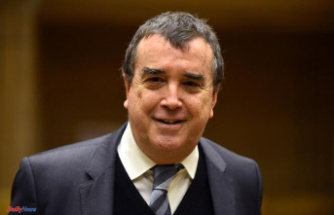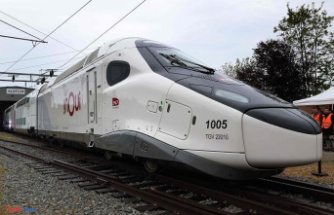Experts had expected an inflation rate of 10.0 for October. But an initial estimate by the Federal Statistical Office shows that inflation is even higher. It even reached a new record.
Inflation in Germany accelerated surprisingly sharply in October. According to preliminary data from the Federal Statistical Office, consumer prices rose by an average of 10.4 percent compared to the same month last year. Economists polled by the Reuters news agency had only expected inflation to reach 10.1 percent after hitting the highest level since 1951 at 10.0 percent in September.
High inflation rates reduce the purchasing power of consumers, who can afford less for one euro. This can dampen private consumption as an important pillar of the economy.
Energy rose particularly sharply as a result of the Russian war against Ukraine: it cost an average of 43.0 percent more than in October 2021. The reduction in VAT for natural gas deliveries and district heating from 19 to 7 percent is likely to have had a price-dampening effect. Food cost 20.3 percent more.
According to Federal Economics Minister Robert Habeck, the recent fall in wholesale gas prices will only reach citizens and companies with some delay. The federal government wants to support consumers and companies with a protective shield of up to 200 billion euros because of the sharp rise in energy prices. A gas and an electricity price brake are also to be financed from this. However, details of the planned energy price brakes are still open. So far, the federal government has launched a one-off payment: the gas advance payments are to be taken over in December.
Consumers must be prepared for further price increases in the coming months. In October, too, every second company planned to ask customers to pay more in the near future, as the Munich IFO Institute found out in its monthly survey. The corresponding barometer for price expectations for the coming months fell only slightly for the economy as a whole to 51.5 points, after 53.8 in September.
"The wave of inflation hasn't broken yet," said IFO economic chief Timo Wollmershäuser. "Above all, the high energy costs have not yet been fully passed on to consumers." Food retailers are still planning price increases almost across the board. According to the Bundesbank, the inflation rate in Germany should remain in the double digits in the coming months.
Despite the sharp increase in the cost of living, the German economy grew by 0.3 percent in the third quarter. However, most experts are predicting a winter recession - also because the high prices are eroding the purchasing power of consumers and corona savings are likely to be increasingly depleted.












